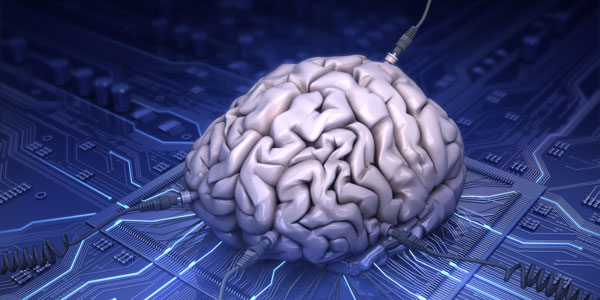
Researchers from Wits University have linked a brain directly to the internet. Data gathered from this project could help fuel the next steps in machine learning and brain-computer interfaces.
BRAIN MEETS IOT
A team of researchers at Wits University in Johannesburg, South Africa have made a major breakthrough in the field of biomedical engineering. According to a release published on Medical Express, for the first time ever, researchers have devised a way of connecting the human brain to the internet in real time. It’s been dubbed the “Brainternet” project, and it essentially turns the brain “…into an Internet of Things (IoT) node on the World Wide Web.”
The project works by taking brainwave EEG signals gathered by an Emotiv EEG device connected to the user’s head. The signals are then transmitted to a low cost Raspberry Pi computer, which live streams the data to an application programming interface and displays the data on an open website where anyone can view the activity. Adam Pantanowitz, a lecturer in the Wits School of Electrical and Information Engineering and the project’s supervisor, said:
Brainternet is a new frontier in brain-computer interface systems. There is a lack of easily understood data about how a human brain works and processes information. Brainternet seeks to simplify a person’s understanding of their own brain and the brains of others. It does this through continuous monitoring of brain activity as well as enabling some interactivity.
INTELLECTUAL MUSCLE
Pantanowitz said this is just the beginning of the possibilities of the project. He adds that the team is now aiming to allow for a more interactive experience between the user and their brain. Some of this functionality has already been built into the site, but it is very narrow — limited to stimulus such as arm movement. “Brainternet can be further improved to classify recordings through a smart phone app that will provide data for a machine-learning algorithm. In future, there could be information transferred in both directions – inputs and outputs to the brain,” Pantanowitz said.
Future applications for this project could lead to some very exciting breakthroughs in machine learning and brain-computer interfaces like Elon Musk’s Neural Lace and Bryan Johnson’s Kernel. Data collected from this project could lead to a better understanding of how our minds work and how we can take advantage of that knowledge to augment our brain power.
Not indicating that the content you copy/paste is not your original work could be seen as plagiarism.
Some tips to share content and add value:
Repeated plagiarized posts are considered spam. Spam is discouraged by the community, and may result in action from the cheetah bot.
Creative Commons: If you are posting content under a Creative Commons license, please attribute and link according to the specific license. If you are posting content under CC0 or Public Domain please consider noting that at the end of your post.
If you are actually the original author, please do reply to let us know!
Thank You!
Downvoting a post can decrease pending rewards and make it less visible. Common reasons:
Submit
Hi! I am a robot. I just upvoted you! I found similar content that readers might be interested in:
https://futurism.com/researchers-have-linked-a-human-brain-to-the-internet-for-the-first-time-ever/
Downvoting a post can decrease pending rewards and make it less visible. Common reasons:
Submit